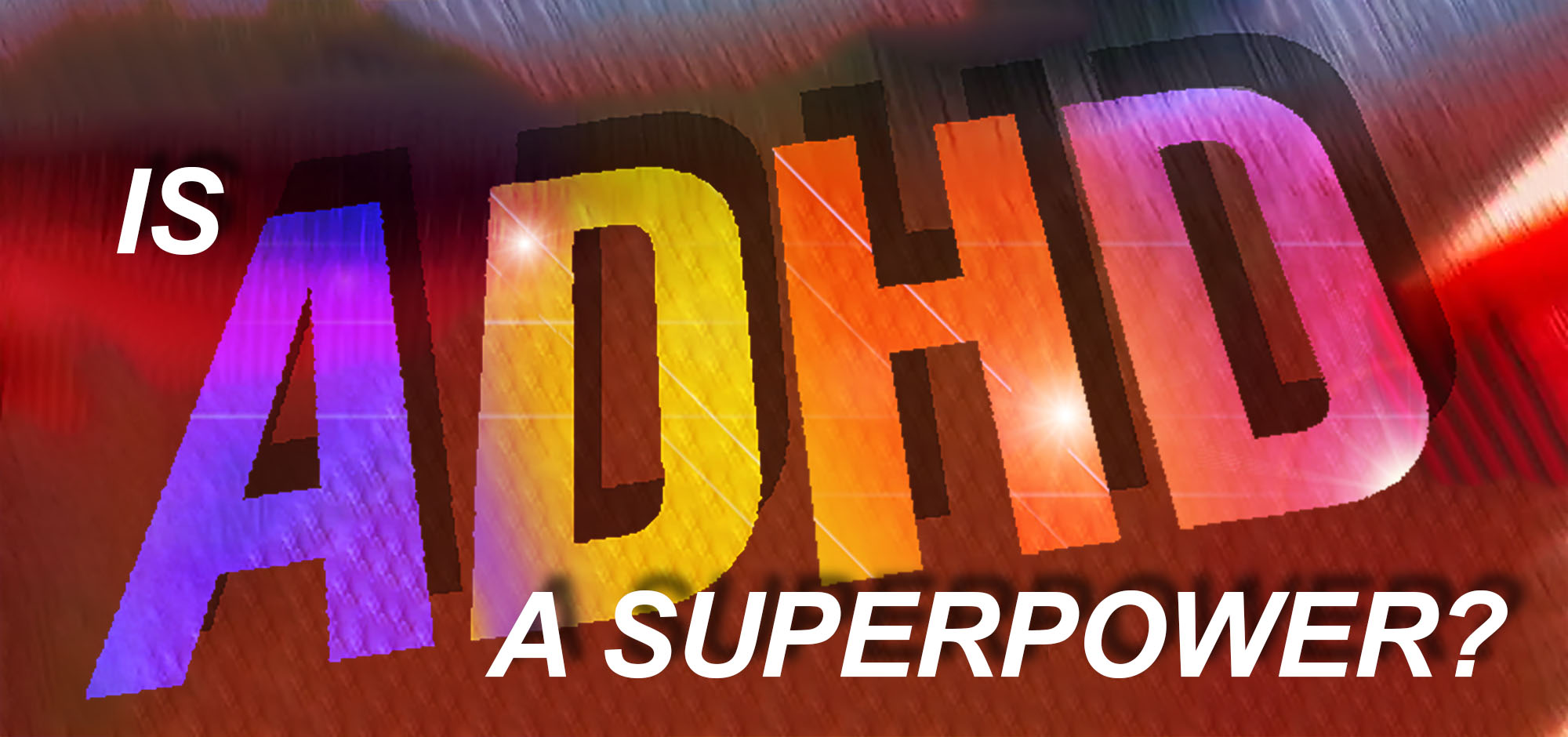

Is ADHD a Superpower?
By Ammon Cheney, Psy.D.
Published May 19, 2023
Is ADHD a Superpower?
As a clinician that has been engaged in understanding, treating, and diagnosing ADHD, I have come to appreciate some of the difficulties and strengths associated with this neurodevelopmental disorder. I provide an ADHD Workshop in Student Health Services. The workshop is a great place for students to ask a therapist, or other professional, questions about ADHD. One question I have been asked a couple times is whether I agree that ADHD is a “superpower.”
While many people are still wrestling with whether or not ADHD even exists, it may seem like a leap to claim that it provides super abilities. So let us answer the existence question first. For me, a similar question is, “Does green exist?” I mean we see it all over campus, do we not? However, I could argue that is not green we see; rather, it is just the combination of blue and yellow. When psychologists experience the same cluster of symptoms occurring together frequently, and causing dysfunction in someone’s life, we give that cluster of symptoms a name. Similar to the combination of blue and yellow being labeled as green, the combination of five or more symptoms of distraction or hyperactivity can be labeled as ADHD. (Diagnosing is much more involved than a checklist; come to the ADHD Workshop to learn more). The presence of dysfunction or impairment is required for a diagnosis. Therefore, while people may experience the same symptoms as someone with ADHD, if they are not experiencing impairment, across several of life’s domains, from those symptoms they likely do not meet criteria for a diagnosis. Recent estimates suggest that about 9% of children and about 3.5% of adults merit an ADHD diagnosis.
Regardless of the mental health condition experienced by my clients, I adopt a strength-based approach toward their acquired traits. I am inclined to believe that throughout development, we acquire adaptive skills and strategies that help us survive and thrive in our own unique environments and relationships. Personal development might be a microcosm of evolution: a developing child adapts to their surroundings as a developing species adapts to their habitat. ADHD is seen as having a biological basis, more-so than an environmental basis. This perspective suggests that ADHD is a product of evolution that gave advantage to our species in some way. Justin Garson Ph.D, writing for Psychology Today, stated, “ADHD traits, such as novelty seeking, exploration, and vigilance, might have been an evolutionary benefit to our ancestors who had to move from place to place in search of new resources while being attentive to threats.” ADHD is commonly understood as a deficit of dopamine in the reward pathways of the brain. “Novelty seeking” or desire for increased stimulation makes it difficult for someone with ADHD to tolerate boring lectures, conversations, lines, and the focus required to complete time-intensive projects. These, and many other tasks, are required in a society built for neurotypical brains. So does that mean that ADHD used to be a superpower, and is now only a vestigial cognitive structure?
I think the presence of a superpower is determined by knowing one’s strengths and using them for good. When those of us with ADHD understand that many of our difficulties are associated with the neurotypical majority not accommodating our low dopamine levels, we can take ownership of finding stimulating ways to engage with the world around us in amazing ways. The pursuit of dopamine is an adventure that many others want to join. Do you find a lecture boring? Ask what others are afraid to ask. Maybe conceptualize a more engaging presentation of the material. Creating that perfect lesson plan for yourself will almost definitely help you (and maybe others) learn the material better. With ADHD, we can only hear, “I don’t know, what do you want to do?” a limited number of times before we introduce an activity. Like any superhero origin story, someone with ADHD will find their superpower, not in the acts of flailing impulsivity and restlessness, but in the accumulation of knowledge and the deliberate exercise of personal values.
The standard of care for ADHD is stimulant medication combined with therapy including skills training. Ideally, such care empowers people with ADHD to engage in a neurotypical world while celebrating their neurodiverse “superpowers.” At UVU Student Health Services, students have access to ADHD assessment, the ADHD Workshop, Neurodivergent group therapy, individual therapy, and medication management at relatively low cost. Feel free to reach out to Student Health Services to learn more about your options.

